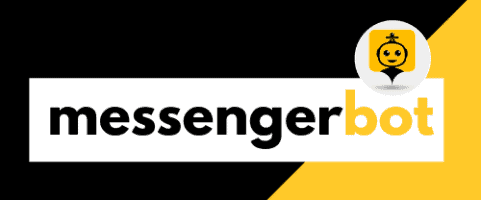In today’s digital landscape, leveraging technology to enhance customer engagement is crucial for any business aiming to maximize its potential. One powerful tool that has emerged in this realm is the Chatfuel chatbot. This article will delve into the essentials of Chatfuel, exploring its features, pricing options, and safety measures to help you make informed decisions. We will begin by answering the fundamental question, What is a Chatfuel chatbot?, and discuss how Chatfuel AI can significantly enhance customer interaction. Additionally, we will compare Chatfuel pricing with other platforms like Manychat and Tars, ensuring you understand the value you receive for your investment. As we navigate through user feedback and reviews, we will also address concerns about the legitimacy and safety of using chatbots in your business. Finally, we will guide you through the Chatfuel dashboard and highlight key features that can boost your business efficiency. Join us as we uncover the potential of Chatfuel and how it can transform your customer engagement strategy.
What is a Chatfuel chatbot?
Chatfuel is a powerful cloud-based chatbot platform designed to enhance marketing operations primarily on Facebook Messenger. It leverages artificial intelligence (AI) to create interactive chatbots that can engage users, automate responses, and streamline customer service processes.
Understanding the Basics of Chatfuel
Chatfuel offers a range of features that make it an essential tool for businesses looking to improve their customer interaction strategies. Here are some key features of Chatfuel:
- AI-Powered Automation: Chatfuel enables businesses to automate responses to frequently asked questions (FAQs), allowing for immediate customer support without human intervention. This feature significantly reduces response times and improves user satisfaction.
- User-Friendly Interface: The platform offers a drag-and-drop interface that simplifies the chatbot creation process, making it accessible for users without coding experience. This ease of use encourages businesses of all sizes to implement chatbot solutions.
- Integration Capabilities: Chatfuel seamlessly integrates with various third-party applications, including CRM systems and e-commerce platforms, enhancing its functionality and allowing businesses to manage customer interactions more effectively.
- Analytics and Insights: The platform provides detailed analytics that help businesses track user interactions, measure engagement, and optimize chatbot performance based on real-time data.
- Personalization Features: Chatfuel allows for personalized user experiences by utilizing user data to tailor conversations, thereby increasing engagement and conversion rates.
- Multi-Platform Support: While primarily focused on Facebook Messenger, Chatfuel also supports deployment on other messaging platforms, broadening its reach and usability.
According to a report by Business Insider, the chatbot market is expected to reach $1.34 billion by 2024, highlighting the growing importance of AI-driven customer engagement tools like Chatfuel. By adopting Chatfuel, businesses can stay ahead in the competitive landscape of digital marketing and customer service.
How Chatfuel AI Enhances Customer Interaction
Chatfuel AI enhances customer interaction by providing a seamless and engaging experience for users. Here’s how:
- Instant Response Capability: With AI-driven automation, Chatfuel can respond to customer inquiries instantly, ensuring that users receive timely assistance without waiting for human agents.
- 24/7 Availability: Chatfuel operates around the clock, allowing businesses to engage with customers at any time, which is crucial for global operations and customer satisfaction.
- Interactive Conversations: The platform supports rich media formats, enabling chatbots to send images, videos, and quick replies, making conversations more engaging and informative.
- Lead Generation and Qualification: Chatfuel can be programmed to capture leads and qualify them through interactive dialogues, streamlining the sales process and improving conversion rates.
- Feedback Collection: Businesses can use Chatfuel to gather customer feedback through surveys and polls, providing valuable insights for improving products and services.
By leveraging these capabilities, Chatfuel not only enhances customer interaction but also drives business growth and efficiency.
Is Chatfuel Free?
Chatfuel is a popular chatbot development platform that allows users to create and manage chatbots for Facebook Messenger and other messaging platforms without any coding knowledge. This accessibility makes it an attractive option for businesses looking to enhance their customer engagement through automated interactions.
Exploring Chatfuel Pricing Options
When it comes to Chatfuel pricing, the platform offers a free plan that allows users to create a chatbot with basic features. This plan is suitable for small projects or for users who want to test the platform’s capabilities. However, it comes with limitations, such as a cap on the number of messages and features available.
In addition to the free plan, Chatfuel provides a free 7-day trial for its Pro plan, which includes access to all premium features, such as unlimited messages, advanced analytics, and integrations with third-party services. This trial allows users to fully explore the platform and determine if it meets their needs before committing to a paid subscription.
Comparing Chatfuel Pricing with Manychat and Tars Chatbot
When evaluating Chatfuel pricing against competitors like Manychat and Tars, it’s essential to consider the features offered at each pricing tier. Manychat, for instance, also provides a free plan but may have different limitations compared to Chatfuel. Tars, on the other hand, focuses more on lead generation through conversational landing pages, which may appeal to businesses with specific marketing goals.
Understanding these differences can help businesses choose the right platform that aligns with their objectives. For a comprehensive overview of chatbot solutions, you can explore resources that discuss various platforms and their unique offerings.
What is ChatGPT Chatbot?
ChatGPT is an advanced artificial intelligence (AI) chatbot developed by OpenAI, leveraging state-of-the-art natural language processing (NLP) techniques to facilitate human-like conversational interactions. This sophisticated language model is built on the Generative Pre-trained Transformer (GPT) architecture, specifically designed to understand and generate text that closely resembles human communication.
Differences Between ChatGPT and Chatfuel
While both ChatGPT and Chatfuel are designed to enhance customer interactions, they serve different purposes and functionalities. Chatfuel is primarily a platform for building chatbots that automate responses on messaging platforms like Facebook Messenger, focusing on predefined flows and user engagement strategies. In contrast, ChatGPT excels in dynamic conversations, providing more nuanced and context-aware responses. This makes ChatGPT particularly suitable for applications requiring complex dialogue, such as customer support and content generation.
For businesses looking to implement chatbots, understanding these differences is crucial. Chatfuel’s structured approach allows for easy setup and management of automated conversations, while ChatGPT’s flexibility offers a more conversational experience. Depending on your needs, you may choose to integrate both solutions for a comprehensive customer engagement strategy.
Use Cases for ChatGPT Chatbot in Business
ChatGPT can be utilized in various business scenarios to enhance customer engagement and operational efficiency. Here are some key use cases:
- Customer Support: ChatGPT can handle customer inquiries, providing instant responses and reducing wait times. Its ability to maintain context over multiple exchanges allows for more meaningful interactions.
- Content Creation: Businesses can leverage ChatGPT to generate marketing content, social media posts, and even technical documentation, streamlining their content creation processes.
- Virtual Assistance: ChatGPT can serve as a virtual assistant, helping users with scheduling, reminders, and information retrieval, thereby improving productivity.
- Training and Education: Organizations can use ChatGPT for training purposes, providing interactive learning experiences that adapt to the user’s pace and understanding.
By integrating ChatGPT into their operations, businesses can not only improve customer satisfaction but also drive efficiency and innovation. For more insights on enhancing customer support with AI, check out this article.
Is Chatfuel Legit?
When considering a platform for building chatbots, it’s essential to evaluate its legitimacy and security. Yes, Chatfuel is a legitimate and secure platform for building chatbots. It employs robust encryption methods to protect user data, ensuring that all interactions remain confidential. This commitment to security makes Chatfuel a trusted choice for businesses looking to enhance their customer engagement through automated solutions.
Analyzing Chatfuel Reviews and User Feedback
Chatfuel has garnered a variety of reviews from users across different industries. Many users appreciate its user-friendly interface, which allows even those without coding experience to create effective chatbots. The drag-and-drop functionality simplifies the design process, making it accessible for everyone. Additionally, users have highlighted the platform’s integration capabilities with popular applications like Facebook Messenger and Instagram, which enhance its functionality.
Moreover, Chatfuel’s AI-powered responses have been praised for improving user engagement and satisfaction. Businesses report increased interaction rates and better customer service outcomes, thanks to the intelligent responses generated by the chatbot. For detailed insights into user experiences, you can explore Brain Pod AI’s offerings as a comparison for AI-driven solutions.
The Reputation of Chatfuel in the Market
Chatfuel has established a strong reputation in the chatbot market, often being compared to competitors like Manychat and Tars. While each platform has its unique features, Chatfuel stands out for its comprehensive analytics and insights, allowing users to track performance metrics effectively. This capability is crucial for businesses aiming to optimize their chatbot strategies continuously.
Furthermore, Chatfuel adheres to GDPR regulations, ensuring that user privacy is maintained and respected. This compliance is vital for businesses operating in regions with strict data protection laws. For more information on chatbot solutions and comparisons, you can visit this resource.
Are chatbots safe to use?
While AI chatbots offer convenience and efficiency, their safety largely depends on how users interact with them and the security measures implemented by the providers. Here are key considerations regarding the safety of chatbots:
Data Privacy
Chatbots often collect and store user data to improve their responses and functionality. This data can include personal information, preferences, and conversation history. Users should avoid sharing sensitive information such as passwords, financial details, or personal identification numbers (PINs) with chatbots. According to a report by the Electronic Frontier Foundation (EFF), users should be cautious about the data they share, as it may be stored indefinitely and used for purposes beyond the initial interaction.
Security Vulnerabilities
Chatbot servers can be susceptible to hacking attempts. Cybercriminals may exploit vulnerabilities to access sensitive data. A study by IBM found that 95% of cybersecurity breaches are due to human error, highlighting the importance of user awareness in maintaining security. Providers should implement robust security protocols, including encryption and regular security audits, to protect user data.
Regulatory Compliance
Many chatbot providers are required to comply with data protection regulations, such as the General Data Protection Regulation (GDPR) in Europe and the California Consumer Privacy Act (CCPA) in the United States. These regulations mandate strict guidelines on data collection, storage, and user consent. Users should verify whether the chatbot complies with relevant regulations to ensure their data is handled responsibly.
User Awareness and Education
Users should educate themselves about the capabilities and limitations of chatbots. Understanding how chatbots process information can help users make informed decisions about what to share. Resources like the Cybersecurity & Infrastructure Security Agency (CISA) provide guidelines on safe online practices, including interactions with AI technologies.
Provider Reputation
The safety of chatbots can also depend on the reputation of the provider. Established companies with a track record of prioritizing user security are generally safer options. Users should research and choose chatbots from reputable sources that have transparent privacy policies and security measures in place.
In conclusion, while chatbots can be safe to use, users must exercise caution and be aware of the potential risks associated with data sharing and security vulnerabilities. By following best practices and staying informed, users can enhance their safety while enjoying the benefits of AI chatbots.
How do I remove Chatfuel from my Facebook page?
Removing Chatfuel from your Facebook page is a straightforward process that ensures your integrations are managed effectively. To disconnect Chatfuel, follow these steps:
- Access Chatfuel Dashboard: Log in to your Chatfuel account and navigate to the dashboard where your bots are listed.
- Select the Bot: Click on the specific bot associated with the Facebook page you wish to disconnect.
- Go to Growth Tools: In the left-hand menu, find and click on the “Growth Tools” tab.
- Disconnect Facebook Page: Under the “Facebook Pages” block, locate the page you want to disconnect. Click on the “Disconnect” button next to it.
- Verify Disconnection: To ensure that the service has been properly disabled, go to your Facebook page settings. Under the “Integrations” section, confirm that Chatfuel is no longer listed as an active integration.
- Check Subscriber Status: If you need to transfer subscribers or manage them, consider exporting your subscriber list before disconnecting, as this information may be lost once the integration is removed.
For further assistance, refer to the official Chatfuel documentation or Facebook’s help center for detailed guidance on managing integrations.
Alternatives to Chatfuel for Facebook Integration
If you’re considering alternatives to Chatfuel for your Facebook integration, several platforms offer robust features that can enhance your customer interaction capabilities. Notable competitors include Manychat and Tars. Both platforms provide unique functionalities that cater to different business needs.
Manychat, for instance, is known for its user-friendly interface and extensive automation features, making it a popular choice for businesses looking to streamline their messaging processes. Tars, on the other hand, focuses on creating conversational landing pages that can significantly improve lead generation and customer engagement.
When evaluating these options, consider your specific requirements, such as pricing, ease of use, and the types of customer interactions you aim to facilitate. For more insights on chatbot solutions, you can explore this guide that compares various chatbot platforms.
Chatfuel Dashboard and Features
The Chatfuel chatbot dashboard is designed to provide users with an intuitive interface that simplifies the management of chatbot functionalities. This platform is particularly beneficial for businesses looking to enhance their customer engagement through automated interactions. Understanding how to navigate the Chatfuel dashboard effectively can significantly impact your chatbot’s performance and user experience.
Navigating the Chatfuel Dashboard for Optimal Use
When you first log into the Chatfuel dashboard, you will find a user-friendly layout that categorizes various features. The main sections include:
- Bot Settings: Here, you can configure your chatbot’s basic settings, including its name, language, and default responses.
- Blocks: This section allows you to create and manage different conversation flows. Each block can contain messages, images, and buttons to guide user interactions.
- AI Setup: Chatfuel AI capabilities enable your bot to understand user queries better and provide relevant responses, enhancing the overall interaction quality.
- Analytics: Monitoring your chatbot’s performance is crucial. The analytics section provides insights into user engagement, helping you refine your strategies.
For a deeper dive into optimizing your chatbot’s performance, consider exploring this guide on setting up your first AI chatbot.
Key Features of Chatfuel That Boost Business Efficiency
Chatfuel offers several features that can significantly enhance business efficiency:
- Automated Responses: With Chatfuel, you can set up automated responses to common inquiries, ensuring that customers receive timely information without requiring human intervention.
- Integration with Facebook: The Facebook Chatfuel integration allows businesses to engage with users directly on their preferred platform, streamlining communication.
- Customizable Templates: Chatfuel provides a variety of templates that can be customized to fit your brand’s voice and style, making it easier to maintain consistency across customer interactions.
- Multilingual Support: This feature enables businesses to cater to a global audience by providing responses in multiple languages, breaking down communication barriers.
For those considering alternatives, platforms like Manychat offer similar functionalities, allowing businesses to compare features and pricing effectively.







